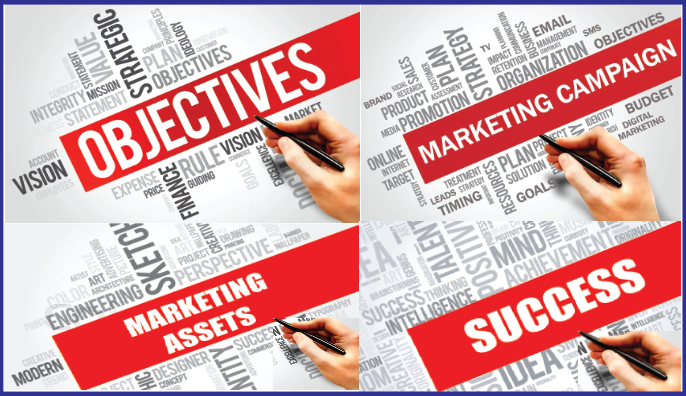Which Is the Neglected ‘Middle Child’ in the Sales Process?
June 17, 2025
There are several possibilities but only one that really qualifies. And for good reason.
Twenty or so steps make up the traditional sales process. Which step do you think is the most neglected, the one that’s most underappreciated, the one suffering from the so-called middle child syndrome*? Is it cold calling, demonstration, pre-meeting preparation, proposal writing, follow-up?
Several candidates are subject to being neglected, especially follow-up. But we believe the most underappreciated step (and therefore neglected) is qualification—and for good reason: It’s a true process in itself and its complete scope isn’t obvious. That means its full value to your topline isn’t obvious either.
Here are some things to think about with respect to qualification. If you put them to work, we know from experience that they’ll help strengthen your sales process and your sales results.
Key Point: Qualifying isn’t one-and-done. Doing it throughout the sales process is essential.
Traditional qualification has it right, as far as it goes, when it asks: Is a particular lead going to be a good prospect? Is it worth the investment of time, energy, and resources it will take to turn this prospect into a customer? (Qualification also applies to current customers. Circumstances can change for them and for you.)
Each company will have different criteria for measuring the attractiveness of a lead. Here are a few that, in one way or another, apply across the board. Be sure to add others that are specific to your business.
- Have we done business with them before?
- What is the source of the lead—advertising, relationship, referral? How reliable is that source?
- Are they within our traditional geographic sweet spot?
- Do they need for what we offer?
- Does our competitive advantage align with that need?
- Is the potential volume large enough?
- Does our sales representative have a strong relationship with the prospective buyer? Will it be easy or hard to build one?
- How tough is the competition? Are there many others quoting? Are they better or worse than we are?
- What type of buyer are we working with: commodity box, consultative, or strategic?
- Are they serious or are they just testing the market?
- Are they willing to participate in our discovery process?
You can—and should—answer some of these questions even before approaching a prospect. Too many sales reps don’t do the kind of research. And that’s too bad because it can save you time in at least three ways:
- It prevents you from talking to companies that clearly don’t qualify.
- It gives you a leg up if they do qualify. You have information you can use to move the sales process forward more efficiently.
- It keeps buyers from cutting the first meeting short because they see that you’re asking questions you should already know the answers to. You’re wasting their time and yours. Plus, if you’re that lax right off the bat, how well will you handle their account if you do get the business?
And that last qualification question —“Are they willing to participate in our discovery process?”—is critical because it helps you deliver value during the sales process —that is, before you’ve sold anything. Delivering value during the sales process is the fastest way to show your expertise and to build trust.
In our FOCIS® consultative sales training course, we not only help salespeople and sales teams understand the value of that concept, but we also teach them how to use it in the field every day. In any company or professional services firm, about 20 percent of the business developers bring in about 80 percent of the business. The key reason that top producers are able to outsell and outearn their fellow salespeople is that they know how to use discovery to deliver value. In fact, we strongly recommend that you not waste time on a lead or prospect who won’t engage in a discovery process that enables you to truly learn how—or, more important, whether —you can create value for them.
Bonus: Good discovery also enables you to see whether your solution might be second best to something else they could be doing. If so, you might be able to give them an insight or refer them to another resource that can help them. That’s one way of “paying it forward,” a practice that can often produce more business over the long term. You can’t help a prospect in that way if they won’t participate in effective discovery.
What else can you do to give qualification the attention it deserves?
Understand that Qualification Is Ongoing : Qualification does have to happen early, but that’s not the end of it. Best practice is to requalify a prospect half-way through your typical sales cycle and then at the end. If you don’t feel that things are tracking mid-point, slow down and review what’s happening.
At the end, if you’ve done all that you normally do and you think you should have gotten the sale, then you have to ask, “What happened?” Reviewing your qualification process can reveal whether you missed something or just ignored a red flag. You can then decide if it’s worth continuing to pursue this prospect, albeit devoting less time, or to move on to new opportunity or one with more potential. Either way will save you time. (Clearly, if you get the sale, the prospect is highly qualified!)
Use New Tools Like Artificial Intelligence (AI) : Some larger firms we work with use artificial intelligence to continuously examine the data and make probability projections for inquiries. These projections can score the attractiveness of the inquiry as well as the odds of making the sale. As the company identifies more and more characteristics to define the attractiveness of an inquiry and factors that influence success, the software keeps updating its ability to help qualify the incoming leads.
Once you see that too much time has been invested in leads with a seven or eight percent probability of success, you can redirect your sales efforts to those leads with higher probabilities. You can scrutinize your entire process to identify problems in getting sales. also examine what may be leading to the low probabilities and you may decide to take action to change something within your operating process to increase those odds. Maybe you need to adjust your target market, for instance.
Even without AI software, you can create an effective manual system with a scoring system that weights the importance of key factors influencing your win/loss ratio. Score every inquiry, add new factors that make sense, and become more selective—and successful—as your data become richer.
And finally . . . Years ago a law firm asked us to train its younger attorneys in FOCIS® consultative selling. “How busy are those folks now?” we asked. Very, we were told, meaning 60-to-70-hour weeks. So why invest in a process that will bring in even more business, we wondered? The firm’s senior management responded that they were not only looking for more business but also better business—in this case, meaning “more interesting” than the routine, often boring, bread-and-butter work younger attorneys often did. That kind of business made them restless, and too often they moved to another firm.
More effective business development can mean “more selective” business development—you don’t have to take everything than comes your way just because you “need the work.” The firm’s leadership told us: “If our sales skills were stronger, we could say goodbye to half the work and have much better practices.” Paying more attention to qualification—the “middle child” of selling—can make that happen.
Would you like more ideas on how to build a much more effective sales process, including a better qualification regimen? Just call or e-mail us at 847-446-0008 Ext. 1 or pkrone@productivestrategies.com.
*In general, middle child syndrome is the belief that children born “in the middle” receive less attention than their oldest and youngest siblings.
The post Which Is the Neglected ‘Middle Child’ in the Sales Process? appeared first on Productive Strategies, Inc..










